With poker millionaires Charlie Carrel and “Xavi666” making headlines for their big wins, Paul Phua explains why it can take years to become an overnight success.
Two players deserve particular congratulations this week. One is a player from Panama known by his online name of “Xavi666”, who has just won over a million dollars in the PokerStars Guaranteed Sunday Million tournament. He is the 200th poker millionaire created on the online poker site.
The other is the personable young player Charlie Carrel. He proved a good ambassador for the game of poker when he was interviewed on a Channel 4 series in the UK called How’d You Get So Rich? It’s not often poker stories cross over to the mainstream media, but many national papers reported on the TV programme’s featurette on how Charlie Carrel turned his initial online stake of just £10 into £3 million.
The reason these stories have attracted so much attention is that they feed into a common dream about poker: that it’s an easy way to get rich quick.
The most famous example in poker history is when humble accountant Chris Moneymaker turned a $39 investment on PokerStars into $2.5 million in 2003. He entered a $39 satellite tournament, which got him into a $600 satellite, which won him a seat in the Main Event at the World Series of Poker – at which this gifted amateur won the whole thing.
But the truth is, all these players have put in a lot of work behind the scenes that you don’t see. I touched on this subject before in my blog on The Iceberg Illusion. Take young Charlie Carrel. He told the TV presenter Katherine Ryan that he started off at very low stakes, playing for 16 hours a day to improve his game, while living with his grandmother. Having studied Maths, Further Maths and Physics at A-Level, he made a detailed study of all the odds. He applied sensible bankroll management, only moving up to a new blind level when he was sure he had mastered the one he was on.
As to Xavi666, after winning his PokerStars million he said that “finally everything came together”. In other words, he had been working and playing hard to reach this point.
There’s a couple of old sayings that I find very insightful. One is, “It takes years to become an overnight success.” The other is, “The harder I work, the luckier I seem to get.”
What they both mean is that every time you see an actor, musician or poker player suddenly become famous, or seemingly “get lucky”, the chances are they have been perfecting their craft, unnoticed by the general public, for many years before that. When opportunity knocks, they are ready for it.
Certainly when I started at poker, I treated it as a challenge, something to work at. I had fun, of course, as I love the game, but I also had the desire to learn and improve. I regularly sat down to marathon high-stakes cash games with some of the world’s top poker pros, not because I felt I would “get lucky” against them, but so that I could learn from their strategy. That was nearly a decade ago, and I still analyse every big hand at the end of a big poker session to see if I could play it better if faced with a similar situation in the future.
So think about it. Are you going to play poker just for fun, staying in more pots than you should do with poor odds of success, in the hopes of getting lucky? Or are you going to play for fun and for profit, improving your game and learning new strategies over time so that, when you do get your shot at a big tournament, you have the skill and experience to become the next “overnight success”?
If it’s the latter, there is good news: some of the poker pros I often play with have kindly agreed to share their top tips and strategy advice with you, my loyal Paul Phua Poker School followers. There’s quite a line-up to my new video series. We have two big Dans (Cates and Colman), as well as Phil Ivey. Discover the full list of names and watch the trailer here.
So if you do dream of becoming the next Xavi666 or Charlie Carrel, a good first step is to go to the Paul Phua Poker YouTube channel and subscribe, so you don’t miss any Paul Phua Poker School videos. It’s free!




